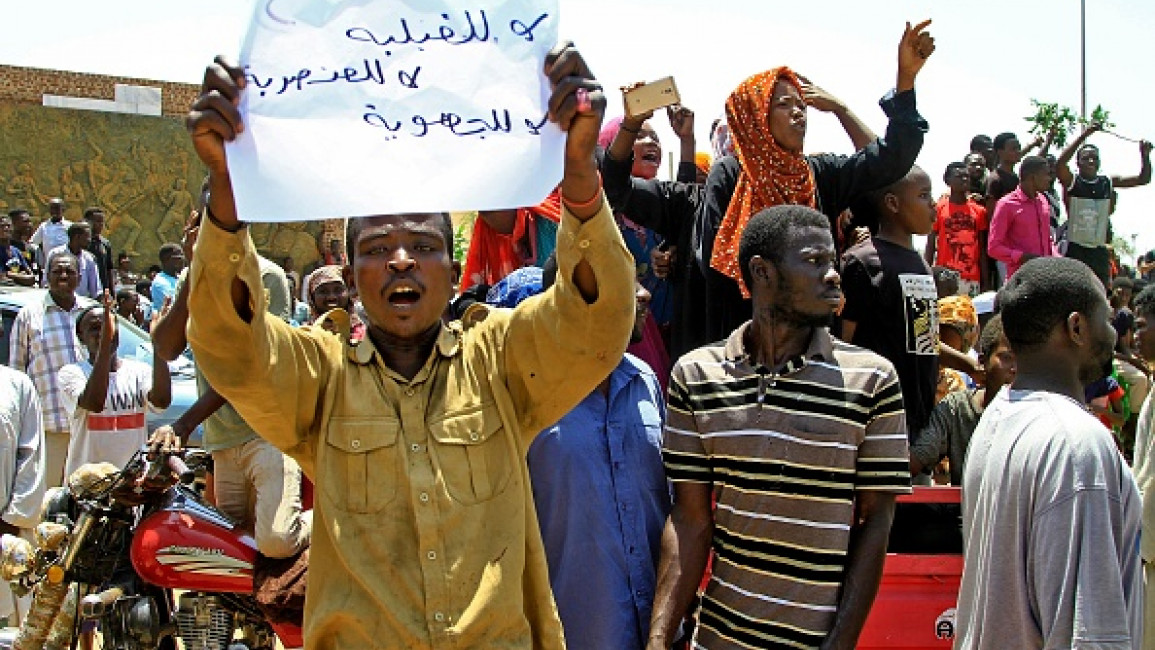Thousands of Sudan's Hausa protest after deadly clashes over land
Thousands of Sudan's Hausa people protested in several cities Tuesday, demanding justice for comrades killed in a deadly land dispute with a rival ethnic group in the country's south.
At least 79 people have been killed and 199 wounded since heavy fighting broke out last week between the Berti and Hausa groups in Blue Nile state, according to the health ministry.
While the army has been deployed in Blue Nile and the fighting quashed, protests have since erupted in other states.
On Tuesday, Hausa protesters in the capital Khartoum held up signs demanding "justice for the Blue Nile martyrs" and "no to the murder of Hausas".
تظاهرات احتجاجية لقبيلة #الهوسا بمدينة #الأبيض حاضرة ولاية شمال كردفان ، منددة بأحداث العنف القبلي في #النيل_الأزرق pic.twitter.com/BJ3sM1A3EG
— معمر السوداني (@MUAMMAR_963) July 19, 2022
Fighting reportedly broke out on July 12 after Bertis rejected a Hausa request to create a "civil authority to supervise access to land", a prominent Hausa member told AFP on condition of anonymity.
But a senior Berti leader said the group was responding to a "violation" of its lands by the Hausas.
In Al-Showak, in Gedaref state east of Khartoum, "around 500 Hausa members blocked the highway", eyewitness Saleh Abbas told AFP.
In El Obeid, capital of North Kordofan state, some 3,000 marched on the streets chanting "the Hausa will win", an AFP photographer reported.
On the Red Sea in Port Sudan, nearly the same amount of protesters gathered outside local government offices, calling for "justice for the martyrs".
In Kassala, authorities have banned public gatherings after thousands of Hausa demonstrators "set government buildings and shops on fire", said Hussein Saleh, another witness.
In Sudan, deadly clashes regularly erupt over land, livestock, access to water and grazing, especially in areas still reeling from the impact of decades of civil war and awash with weapons.
Experts however say an October coup led by army chief Abdel Fattah al-Burhan has stroked a resurgence in ethnic violence in areas.
Guerrillas in Blue Nile battled former president Omar al-Bashir during Sudan's 1983-2005 civil war, before picking up weapons again in 2011.
After enormous protests against his rule, the army ousted Bashir in 2019.
The following year, a civilian-military power-sharing government reached a peace deal with key rebel groups, including from Blue Nile as well as the war-ravaged western Darfur region.
Pro-democracy activists have accused Sudan's military and ex-rebel leaders who signed that peace deal of exacerbating ethnic tensions for political gain, claims they reject.



